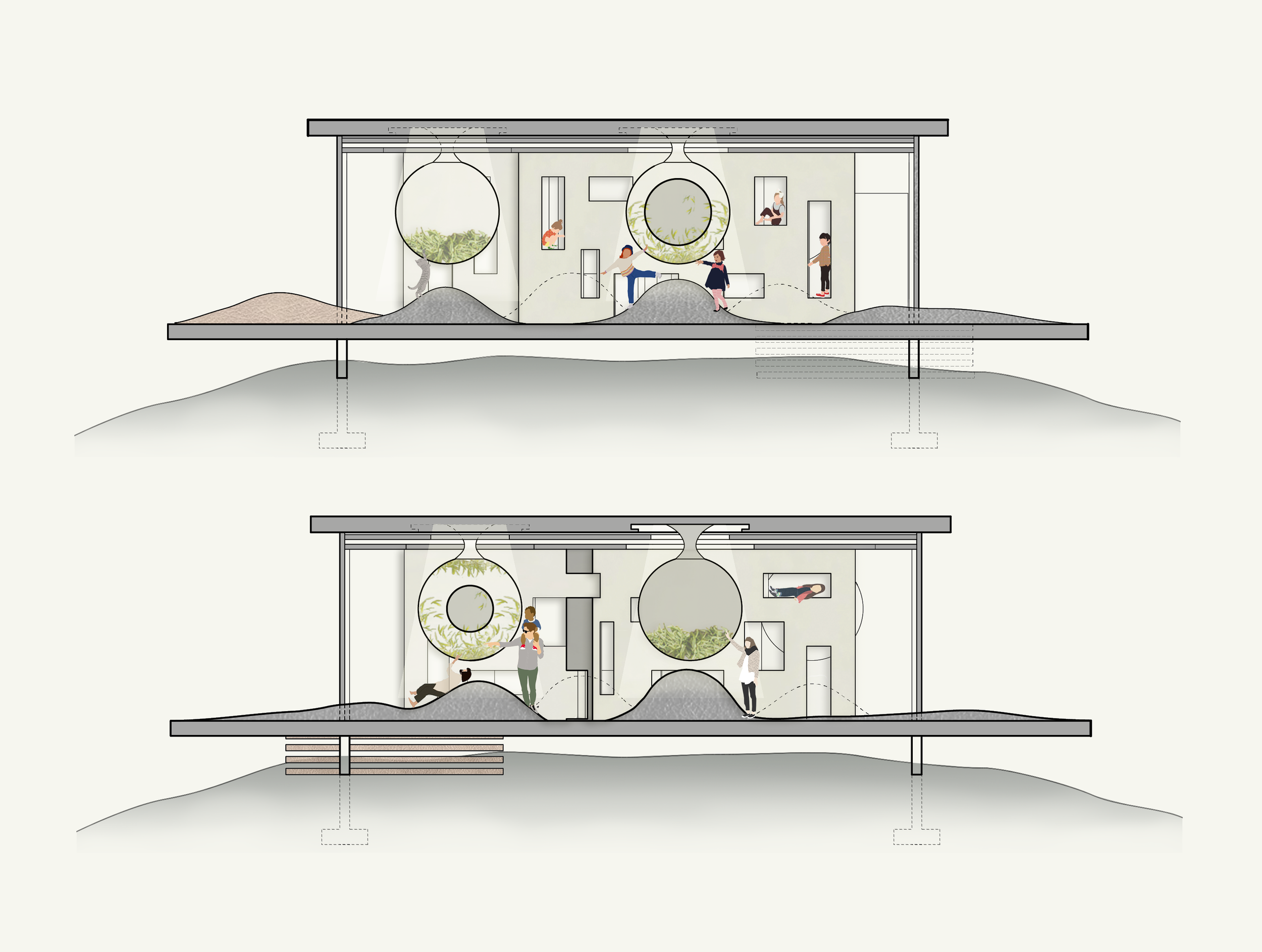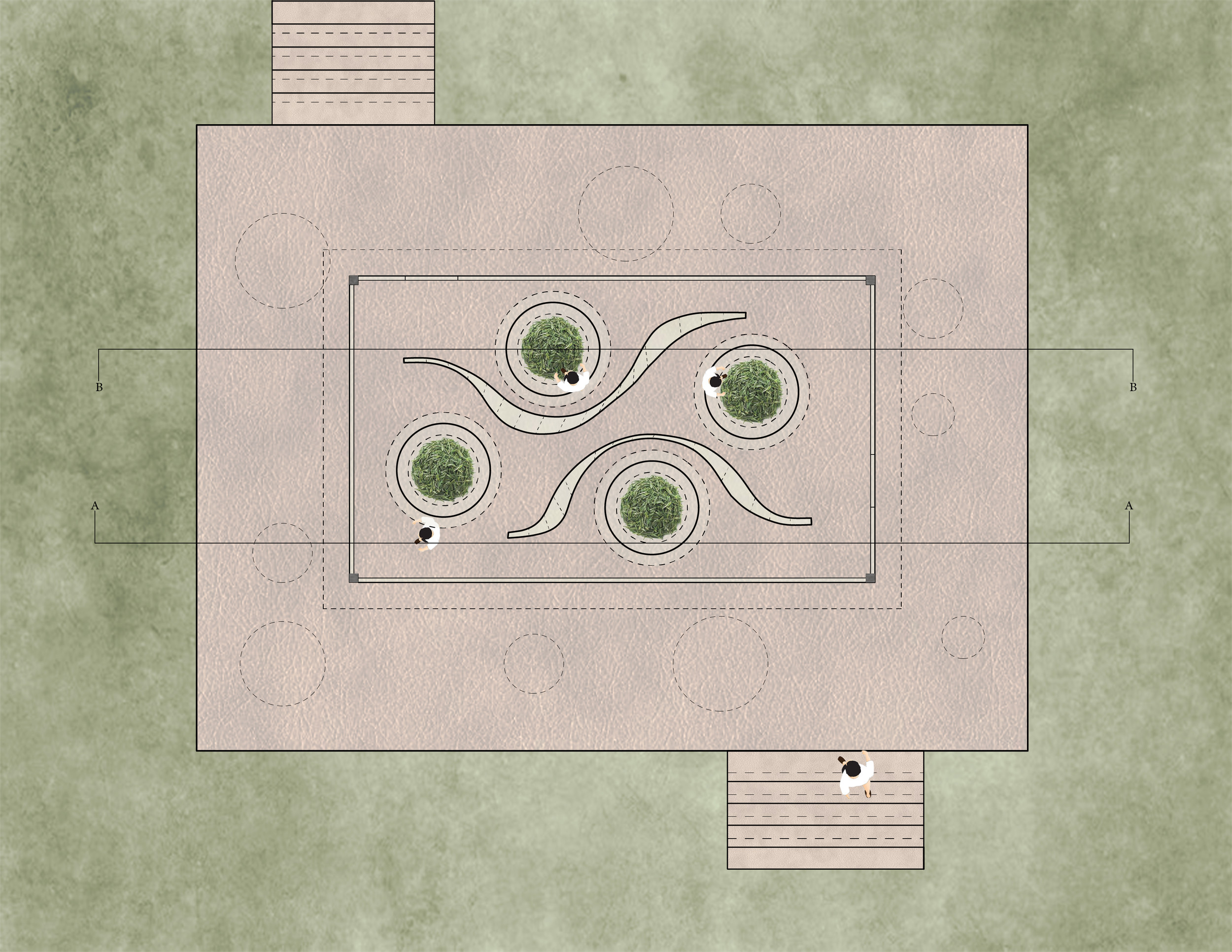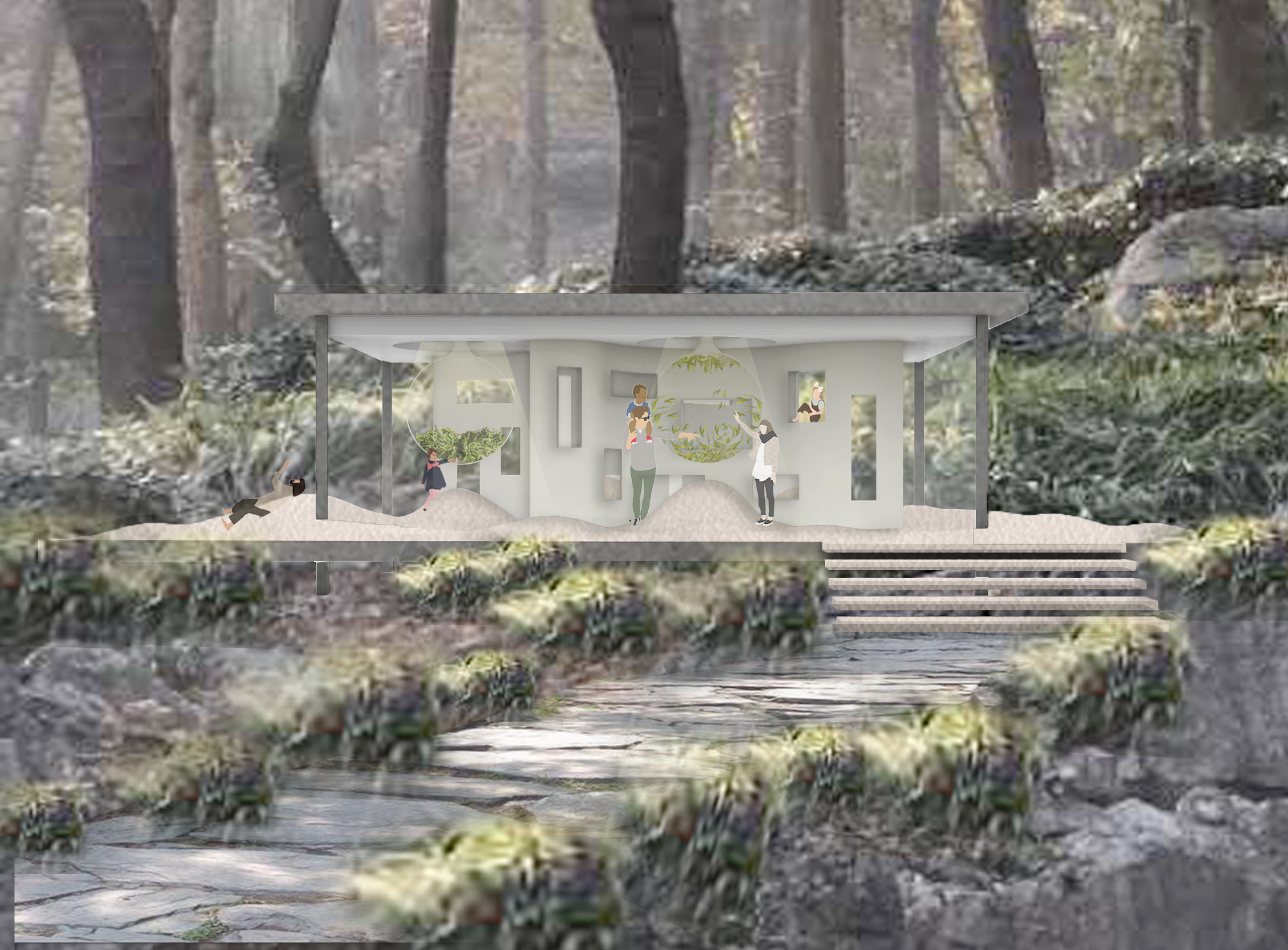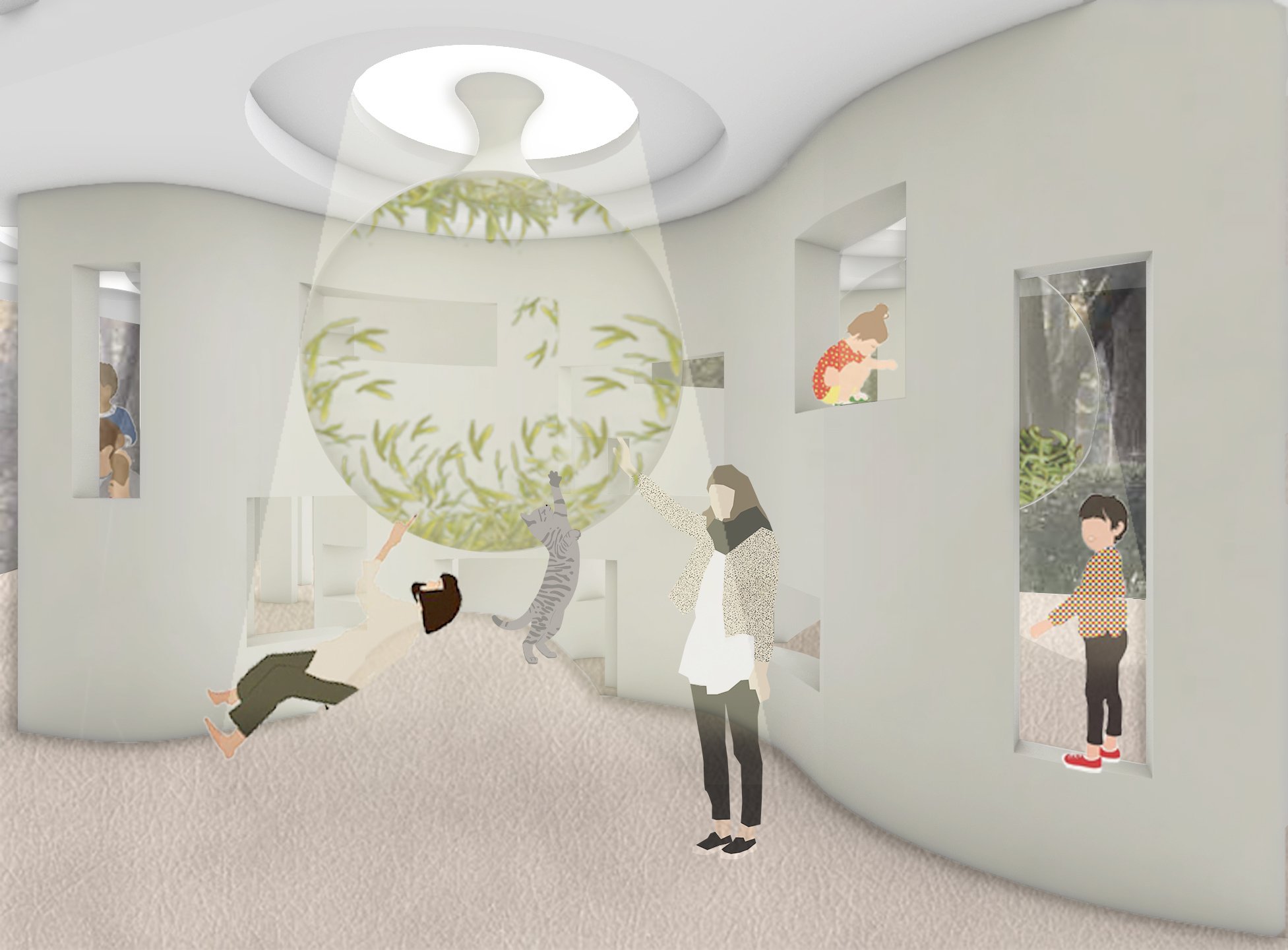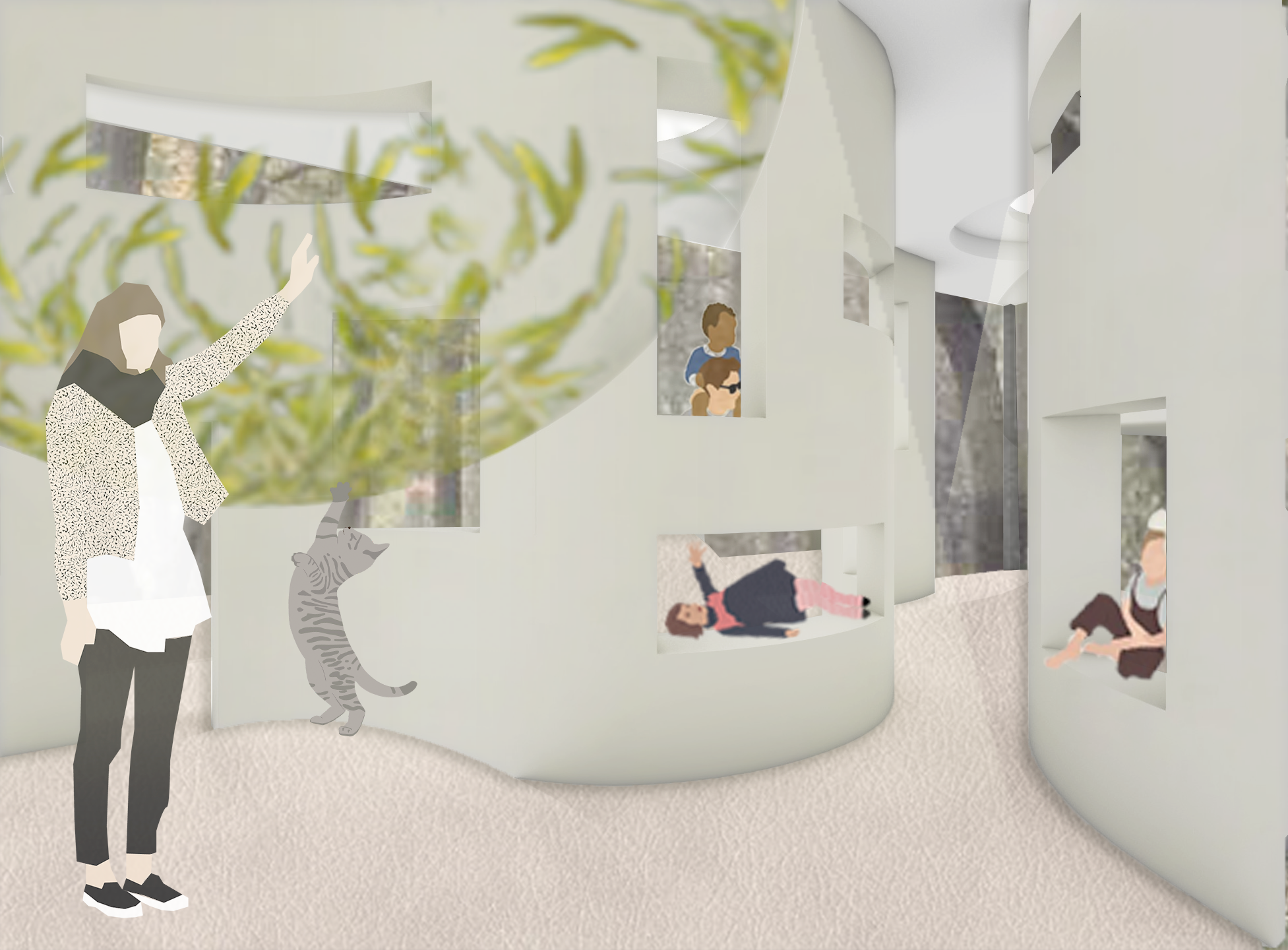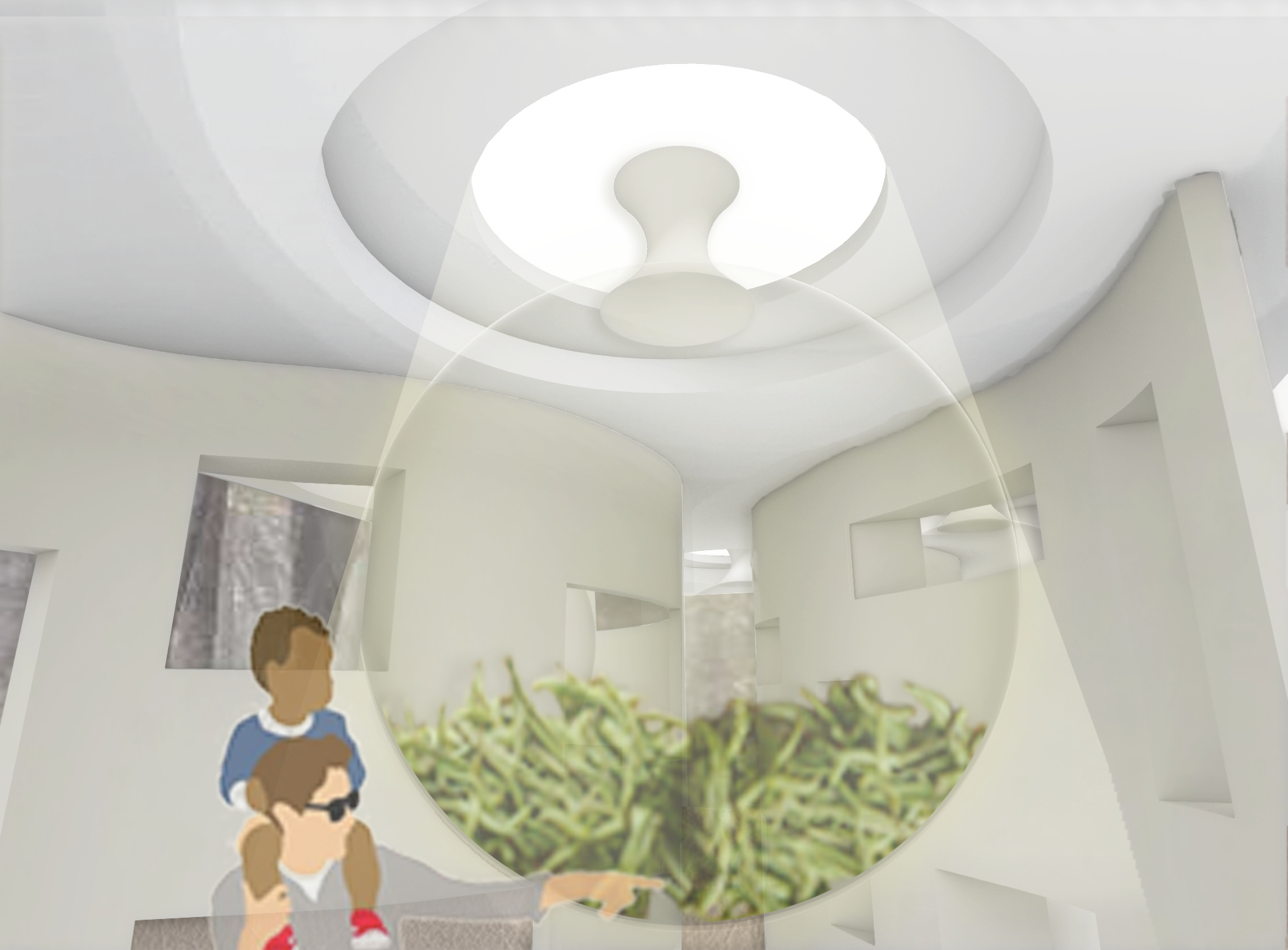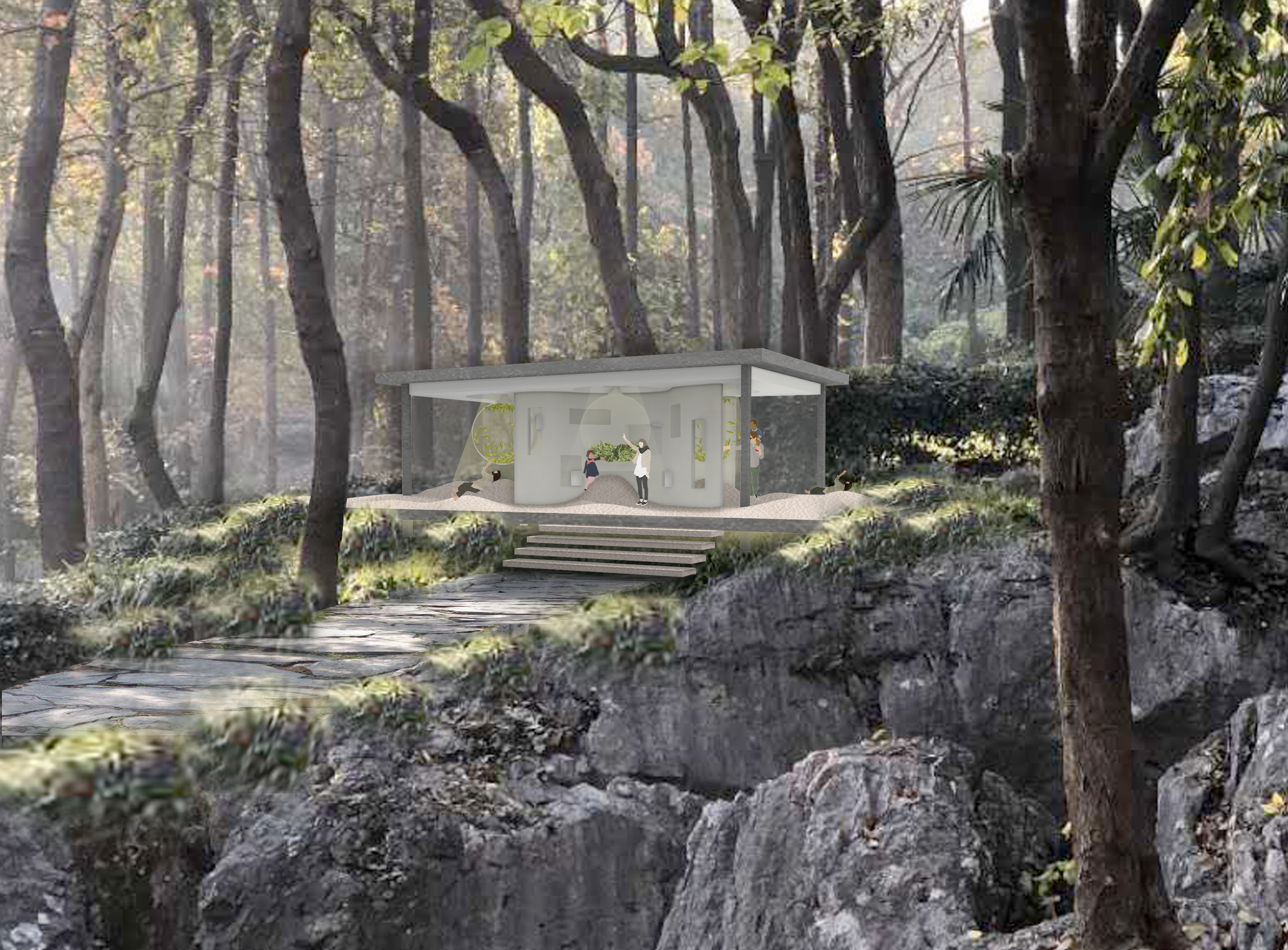
A space to experience senses of the four different types of Longjing tea grown in different mountains in Hangzhou.
The retail store that I designed is a tea-experiencing space, which is set to allow people to experience senses of the four different types of Longjing tea grown in different mountains in Hangzhou. The pop-up space is not like a traditional tea house or retail store, but more like an exhibition space that complements the tea house services. It is located in China National Tea Museum and on the path people visit from the museum to the tea houses on the mountain.
This space helps reduce consumption by reducing the waste of people trying out different tea. In this space, people are invited to have the sense of smell, touch, taste, humidity, and other senses in the different types of tea through the technological measure. Hence, they would have preferences on the tea they want. It reduces the waste of products, energy, and water that were needed before people decided on the one they want. Compared with other products such as coffee or drinks, Longjing tea reduces waste and consumption and enhances the well-being and enjoyment of consumers with cultural value.
